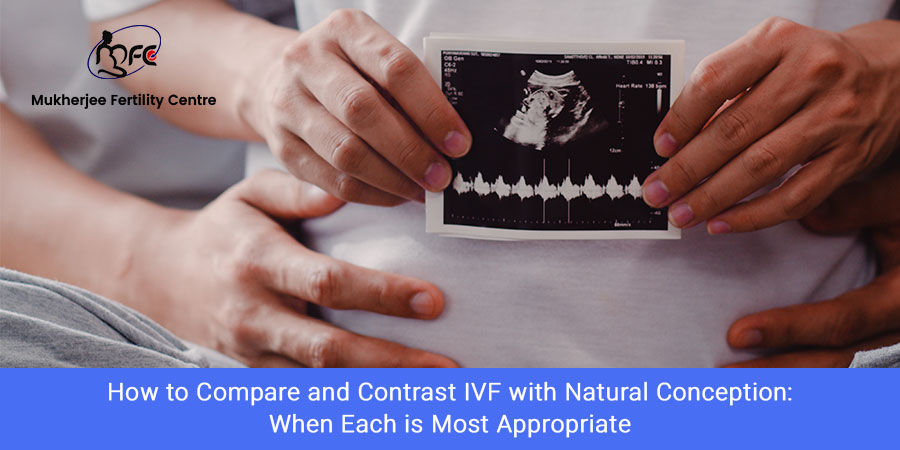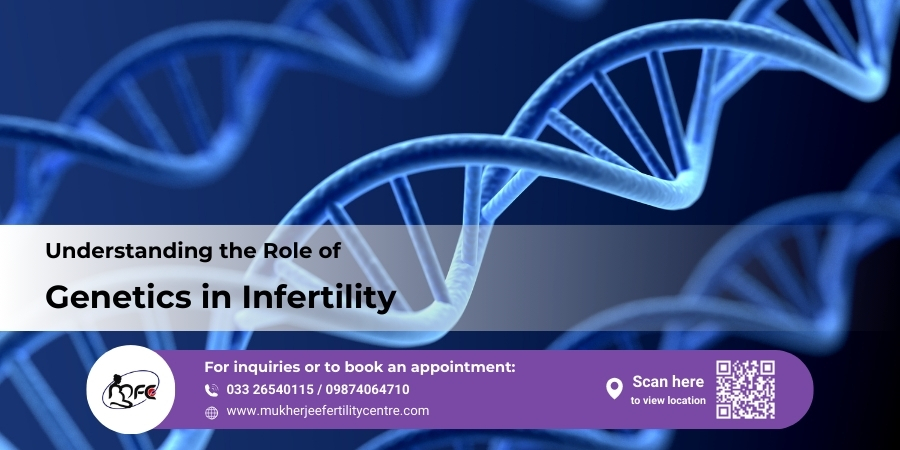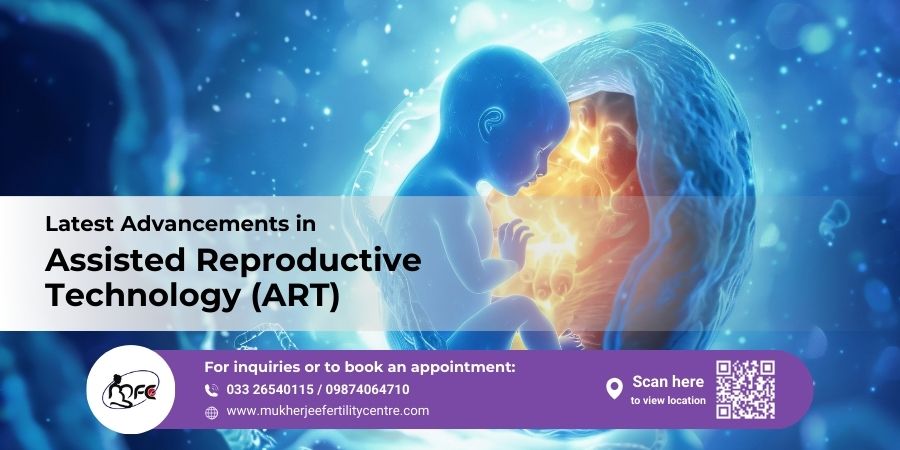
How to Compare and Contrast IVF with Natural Conception: When Each is Most Appropriate
By Mukherjee Fertility Centre on 29,Sep 2023
The road to motherhood may be an emotionally charged and frequently difficult process for couples and individuals who are having trouble getting pregnant. IVF and natural conception are the two main methods for overcoming fertility problems, but fortunately, advances in reproductive medicine have offered a variety of possibilities. We will examine the differences between IVF and natural conception in this comprehensive guide, highlighting the instances in which each technique is most useful for assisting single people and couples in realizing their desire of becoming parents.
Knowing IVF and Natural Conception
IVF is a medically assisted reproductive process that involves fertilizing an egg with sperm outside the body, typically in a lab. After careful inspection and selection, embryos are implanted in the woman's uterus. The IVF process is explained below:
- Ovulation Stimulation: To induce ovulation, patients are given hormonal medications to stimulate the ovaries to produce more eggs.
- Egg Retrieval: A surgical procedure to remove mature eggs from the ovaries.
- Sperm Collection: Capture, prepare, and use sperm for conception.
- Fertilization: Sperm and eggs are combined in a controlled environment to promote fertilization.
- Embryo culture: To promote optimal transfer, embryos are cultured for several days.
- Embryo Transfer: Selecting and putting one or more embryos into the woman's uterus.
- Luteal Phase Support: Hormonal support for embryo implantation.
- Pregnancy Test: A blood test determines pregnancy status.
Bioconception
Natural conception is the conventional technique of pregnancy. Women's eggs and men's sperm fuse during sexual activity. A quick explanation of natural conception:
- Ovulation: A woman's menstrual cycle starts with an egg release from one ovary.
- Intercourse: Sexual activity occurs during the fertile window, typically a few days before and after ovulation.
- To reach the egg for fertilization, sperm must pass through the cervix, uterus, and fallopian tubes.
- Implantation: Fertilized egg zygotes implant in the uterine lining via the fallopian tube, resulting in pregnancy.
Comparing and Contrasting IVF with Natural Conception:
Understanding the fundamental distinctions and factors between IVF and natural conception is essential to choose the best option.
- Underlying Causes of Infertility
- Age Considerations
- Control and Monitoring
- Multiple Pregnancy Risk
- Considerations: Emotional and Financial
- Genetic testing
IVF: When infertility problems, such as blocked fallopian tubes, severe male factor infertility, or ovulation difficulties, are diagnosed, IVF is frequently advised. Couples experiencing unexplained infertility might consider it as a viable alternative.
Natural Conception: Couples without known infertility issues or those who are experiencing just minor fertility issues should consider natural conception. Natural conception is a potential first-choice option if both spouses are healthy.
IVF: Because women's fertility lowers with age, IVF may be suggested for older people or couples. In situations where the maternal age is advanced, IVF may offer a higher likelihood of pregnancy.
Natural Conception: Younger couples who are both in the prime of their reproductive years are more likely to conceive naturally, without the assistance of medical professionals.
IVF: IVF enables precise control over the fertilization process. IVF is controlled and monitored. It increases the likelihood of a healthy pregnancy by enabling medical professionals to track the embryos' growth in a lab environment.
Natural Conception: Chance and timing play a role in natural conception. For couples with certain worries or conditions, it may not offer the same level of control or monitoring as IVF.
IVF: IVF sometimes involves the transfer of many embryos to maximize the likelihood of success, which can raise the possibility of multiple pregnancies (such as twin or triplet pregnancies).
Natural Conception: Multiple pregnancies are less likely with spontaneous conception. Despite having less control over the number of fetuses they conceive, couples might choose to have fewer children if they worry about raising multiples.
IVF: Multiple cycles and setbacks can be emotionally draining. It may be costly to try numerous times to get pregnant.
Natural Conception: Using the body's natural processes may reduce emotional stress. It also reduces IVF expenditures.
IVF: Preimplantation genetic testing (PGT) during in vitro fertilization (IVF) helps identify healthy embryos and reduce the risk of genetic disorders.
Natural Conception: Couples with genetic issues should not use natural conception because there is no genetic screening option.
IVF: When Is It Best?
The following situations suit IVF:
- Couples with severe reproductive issues, such as blocked fallopian tubes, male infertility, or ovulation issues, are said to have severe infertility.
- Advanced Maternal Age: When a woman is past her full pregnancy potential and may struggle to conceive naturally.
- Unexplained Infertility: When the cause of infertility remains unexplained despite thorough evaluation.
- Genetic Concerns: For couples that want to have preimplantation genetic testing done but who have known genetic issues or a family history of genetic diseases.
- Preservation of Fertility: When it's required to preserve fertility because of medical procedures that might have an impact on future fertility.
- Same-Sex Couples: For same-sex couples who want to produce embryos for surrogacy or implantation using their own or donor gametes.
When Is Natural Conception Most Appropriate?
The following situations call for natural conception:
- No Known Infertility Issues: When both partners are healthy and have no identified infertility factors.
- Younger Couples: Natural conception is more likely when both spouses are in their reproductive prime.
- Minimal Emotional and Financial Stress: For couples seeking to reduce the emotional and financial burden of assisted reproductive technology. Low financial and emotional stress.
- Preference for Unassisted Conception: For those who cherish intimacy and natural pregnancy through sexual activity.
- Low Risk of Genetic Disorders: The likelihood of a child inheriting a genetic disorder is low.
Conclusion:
The choice between IVF and natural conception relies on the health, needs, and readiness of the individual. Speak to our infertility expert, Dr. Shiuli Mukherjee, who can evaluate your situation, provide direction, and suggest the ideal parenting strategy. The best option depends on your objectives because both IVF and spontaneous conception have advantages and disadvantages. Both approaches strive to make parenting more enjoyable for individuals and couples. For more about IVF and consultation, call the Mukherjee Fertility Centre at 033 2654 0115 or 9874064710. For additional information and to schedule an appointment online, please visit our website at www.mukherjeefertilitycentre.com.









